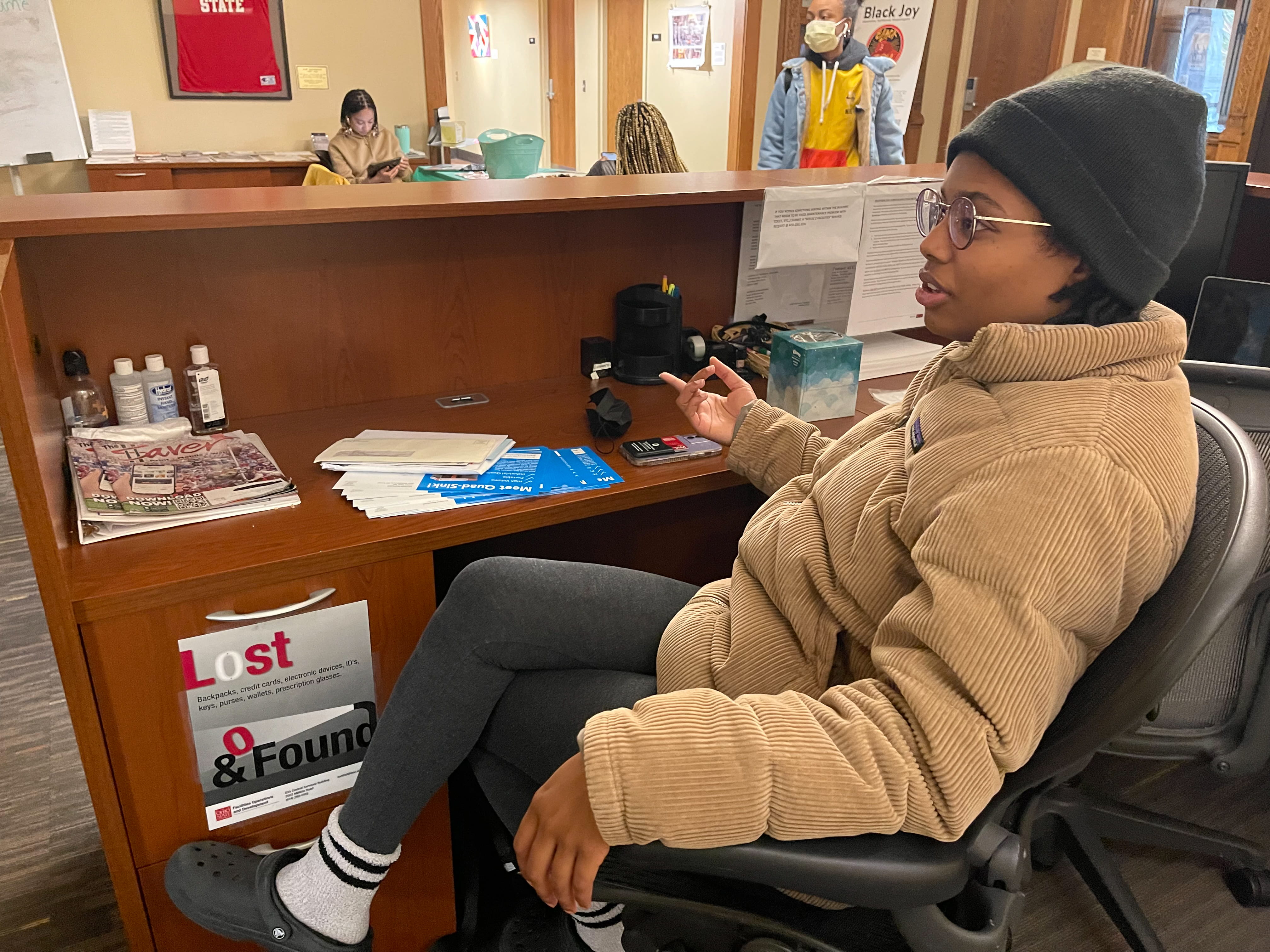
Alanna Strickland, a third-year in international studies working as an administrative assistant in Hale Hall, said she works two jobs to pay for current necessities. Credit: Jasmyne Smith | Lantern Reporter
Ohio State student workers responded to Ohio Attorney General Dave Yost’s rejection of a proposed amendment to the Ohio Constitution Oct. 14 that would raise the state’s minimum wage to $15 per hour by Jan. 1, 2028.
Yost, whose rejection is not final, said in the rejection the language within the proposal was unclear and misleading toward a potential signer. He said the summary can be revised and sent back to be reviewed again.
According to Ohio law, petitioners must submit a petition for a constitutional amendment signed by 1,000 electors as well as a summary of the proposal for the attorney general to examine. The attorney general has 10 days to determine if the summary is “a fair and truthful statement of the proposed law or constitutional amendment.”
Despite the rejection and pushback from Yost, student workers and organizations advocate for higher wages. Paris Taylor, a first-year in biology and a facility assistant at Jesse Owens South Recreation Center, said the proposed amendment would make it easier for future students to meet basic needs during their time on campus.
“It would definitely benefit students because it just allows for people to actually make what they need to pay,” Taylor said. “I just think people should not have to worry if they can’t make rent or just basic needs to survive.”
Ohio State employs over 15,000 students across multiple lines of work. The call for higher wages is not something new, as students protested on campus in the spring 2022 semester for higher wages for student workers.
Yost’s letter comes two weeks after Ohio’s Department of Commerce announced Ohio’s minimum wage will increase from $9.30 to $10.10 per hour for non-tipped employees and from $4.65 to $5.05 per hour for those receiving tips, starting Jan. 1, 2023.
Kierra Murkins, a second-year in health sciences and employee at The Marketplace on Neil, said in an email a significant wage increase would alleviate hardships students who pay for their own education might experience.
“It was really stressing me out due to not making enough money, but also having to pay for my education,” Murkins said. “There were times I couldn’t go to class because I needed the money in order to pay for school.”
Murkins said although she was able to obtain a scholarship to cover the costs of school, she plans to use her vegan skincare business, Fierce Skincare, as a way to help future students who aren’t as lucky.
“I started my business so when I make enough money from it, I’ll be able to help other students by giving out scholarships, etc., so they wouldn’t have to go through what I did,” Murkins said. “Low-income students’ situations are worse. Due to my parents not helping me, there were times I would’ve had to drop out just because I couldn’t afford school and didn’t want to take out too many loans.”
Alanna Strickland, a third-year in international studies and administrative assistant in Hale Hall, said if future wages don’t match inflation and possible tuition increases, she believes it’s possible more students will look for off-campus employment.
“I think a lot of students, especially the ones that work here or are working work study jobs, they’re at these positions, but they’re like, ‘I’m about to leave and go work at Chipotle or CVS because they’re paying $15 an hour, and we’re not getting that on campus,’” Strickland said.
University spokesperson Chris Booker said in an Oct. 17 Lantern article, the university “offers competitive pay and benefits to retain and support our student employees.”
“We value their contributions to our campus life and land grant mission,” Booker said.
While many students support the proposed amendment, Strickland said it’s possible that $15 per hour still might not be enough to cover future costs of living.
“I think if they’re going to raise it to $15, it should be now,” Strickland said. “Just for the fact, if you look at economics and how housing and stuff works and how cities work, they’re always growing, and so that means people are going to live here, the price of rent is going to go up.”


